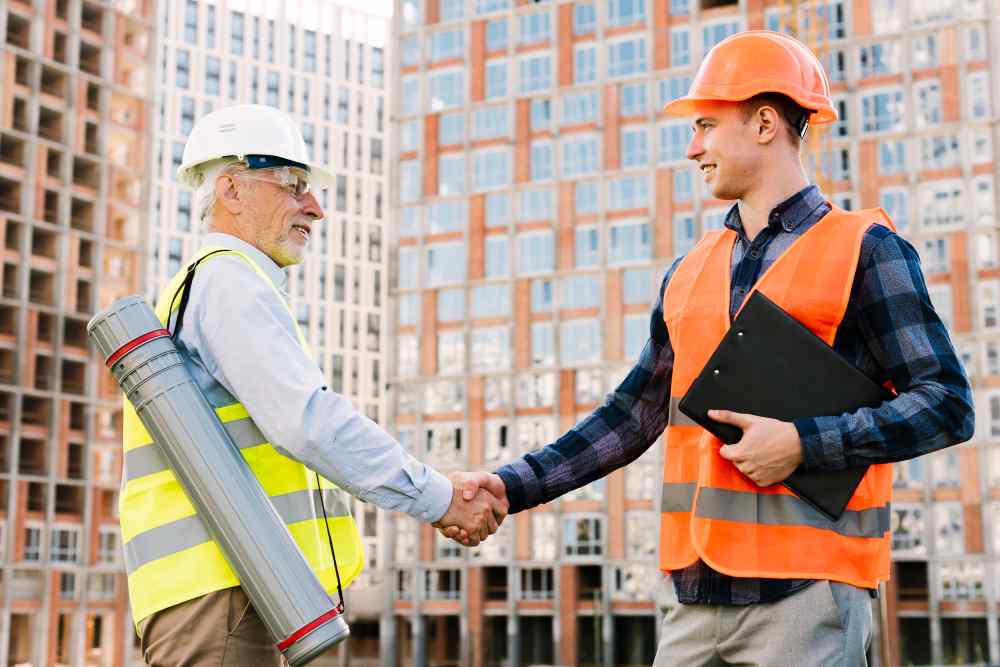In Dubai, where multimillion-dollar projects are the norm, the choice of dispute resolution mechanisms in construction contracts can significantly impact the outcome of any potential conflicts. Whether you are a contractor, subcontractor, or project owner, understanding these mechanisms is crucial for protecting your interests. In this blog, we will delve into the legal aspects of dispute resolution in construction contracts in Dubai.
I. The Legal Landscape
Before delving into the dispute resolution mechanisms themselves, let’s first establish the legal landscape in Dubai:
A. The Dubai Legal System
Dubai’s legal framework for construction contracts primarily draws from the UAE’s civil law system. The key legal provisions relating to construction disputes can be found in the UAE Federal Civil Transactions Law (Federal Law No. 5 of 1985), particularly Articles 203 to 218.
B. Choice of Law
Parties entering into construction contracts in Dubai can typically choose the governing law, except for contracts involving real property located in the UAE or those signed with governmental entities. Understanding the implications of your choice of law is vital, as it will determine the legal framework for dispute resolution.
II. Dispute Resolution Mechanisms
Now, let’s explore a wider range of dispute resolution mechanisms commonly used in construction contracts:
A. Negotiation and Mediation
1. Negotiation: The first step in resolving disputes often involves direct negotiations between the parties. Parties can attempt to reach an amicable settlement without resorting to formal proceedings.
2. Mediation: Mediation is a non-binding process where a neutral third party helps facilitate discussions and negotiations between the parties. It’s a cost-effective method for resolving disputes while preserving relationships.
B. Arbitration
Arbitration is a popular choice for construction contracts in Dubai due to its flexibility, enforceability, and neutrality:
1. Arbitration Agreement: Parties must include a well-drafted arbitration clause in their contract, specifying details such as the arbitral institution, seat of arbitration, and governing law.
2. Arbitral Institutions: Dubai International Arbitration Centre (DIAC) and International Chamber of Commerce (ICC) are common arbitral institutions used in Dubai. DIAC follows its own rules, whereas ICC follows its International Arbitration Rules.
3. Enforcement of Awards: Dubai is a signatory to the New York Convention, facilitating the enforcement of foreign arbitral awards in the emirate.
C. Litigation
While less preferred, litigation before the local courts in Dubai is a viable option:
1. Jurisdiction: The UAE courts have jurisdiction over construction disputes, but parties may agree to include jurisdiction clauses specifying a particular court’s authority.
2. Process: Litigation follows the UAE Civil Procedure Code, including filing a statement of claim, presenting evidence, and court hearings.
D. Dispute Review Boards (DRBs)
1. DRB Formation: A Dispute Review Board consists of neutral professionals who are appointed at the beginning of a construction project. They periodically review the project’s progress and can provide non-binding recommendations to resolve disputes as they arise.
2. Expert Opinions: DRBs offer expert opinions based on their knowledge of the project, which can be helpful in resolving disputes promptly.
E. Adjudication
1. Adjudication Process: Adjudication is a rapid dispute resolution process where an independent adjudicator makes interim decisions on disputes, often related to payment issues, during the course of construction.
2. Enforceability: Decisions made through adjudication are typically binding and enforceable unless challenged through arbitration or litigation.
F. Dispute Resolution by Engineer (DRE)
1. Role of the Engineer: In some construction contracts, the project engineer plays a central role in resolving disputes. The engineer assesses the issues, makes determinations, and issues certificates related to payments or variations.
2. Importance of Contract Terms: The terms of the contract will define the engineer’s powers and procedures.
By aligning with the best Dubai legal consultants and top law firms in Dubai, construction businesses can navigate the intricate landscape.
III. Key Considerations
A. Time and Cost
The choice of dispute resolution mechanism often comes down to time and cost considerations. Arbitration is known for its speed and efficiency compared to litigation, which can be more time-consuming and costly.
B. Enforcement
Consider the enforceability of decisions. Arbitral awards are generally easier to enforce internationally due to the New York Convention, offering a distinct advantage over court judgments.
C. Confidentiality
Arbitration and mediation often provide a level of confidentiality that litigation lacks. This can be crucial for protecting sensitive business information.
D. Expertise
When selecting a dispute resolution mechanism, consider the complexity of your construction project. Arbitrators and mediators with expertise in construction matters can expedite the resolution process.
Whether through negotiation, mediation, arbitration, or litigation, the goal is the same: to achieve a fair and just resolution to construction disputes. In the end, choosing the right dispute resolution mechanism can make all the difference in the successful completion of your construction project in the vibrant city of Dubai. Consult with experienced legal experts in Dubai, to make informed decisions and ensure project success in Dubai’s dynamic construction industry.

